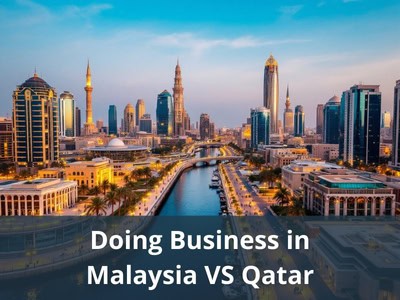Ready to Expand into India? Choose 3E Accounting Today!
Stay Secure, Stay Successful With 3E Accounting Services

Here’s a quick overview of the key differences for easy reference.
| Factor | Malaysia | Qatar |
|---|---|---|
| Business Environment | Stable and pro-investment, transparent legal system | High-income, well-developed but regulated for foreign entry |
| Corporate Tax Rate | 24% | 10% for foreign companies |
| Capital Gains Tax | No | Yes (with exemptions in specific cases) |
| Ease of Incorporation | Fast, digital, low barrier to entry | Slower process, requires local partner in many cases |
| Business Costs | Lower operational and setup costs | Higher, especially for non-local entities |
| Market Access | ASEAN, RCEP, CPTPP connectivity | GCC and Middle East access |

Selecting the right partner is crucial when it comes to starting a business in Malaysia. At 3E Accounting, we offer a comprehensive range of solutions designed to simplify the entire process of company incorporation in Malaysia. From ensuring compliance with local regulations to providing expert guidance tailored to your specific needs, we make the journey seamless.
For entrepreneurs looking to navigate Malaysia company registration or explore company setup in Malaysia, our team provides unmatched expertise and support. Additionally, our company incorporation services are tailored to help you succeed in the competitive business environment.
With a deep understanding of the region’s business landscape, we also provide resources for setting up businesses in Malaysia, ensuring that every step is clear and efficient. Whether you need assistance with corporate secretarial or company secretary services, we are here to help.
To explore our services or discuss your business needs, contact 3E Accounting. With our strong presence in Malaysia and a proven track record, we are your trusted partner for success in Asia.
Stay Secure, Stay Successful With 3E Accounting Services
Answer: Malaysia provides a more affordable, accessible, and digitally streamlined setup. See this guide on starting a business in Malaysia for a full overview.
Answer: Yes. Malaysia offers full online registration with minimal red tape. Refer to the Malaysia company registration guide for step-by-step details.
Answer: Through the Companies Commission of Malaysia (SSM), the company incorporation in Malaysia is straightforward and foreigner-friendly.
Answer: 3E Accounting provides complete company incorporation services.
Answer: Yes. Malaysia has lower costs across labor, infrastructure, and rent. View this guide to setting up businesses in Malaysia for specifics.
Answer: You can contact 3E Accounting to handle your full company setup in Malaysia.
Answer: Yes. Malaysia offers corporate secretarial and company secretary services for full compliance.
Answer: 3E Accounting provides tax, accounting, compliance, and a wide range of corporate services in Malaysia.
Abigail Yu
Author
Abigail Yu oversees executive leadership at 3E Accounting Group, leading operations, IT solutions, public relations, and digital marketing to drive business success. She holds an honors degree in Communication and New Media from the National University of Singapore and is highly skilled in crisis management, financial communication, and corporate communications.

